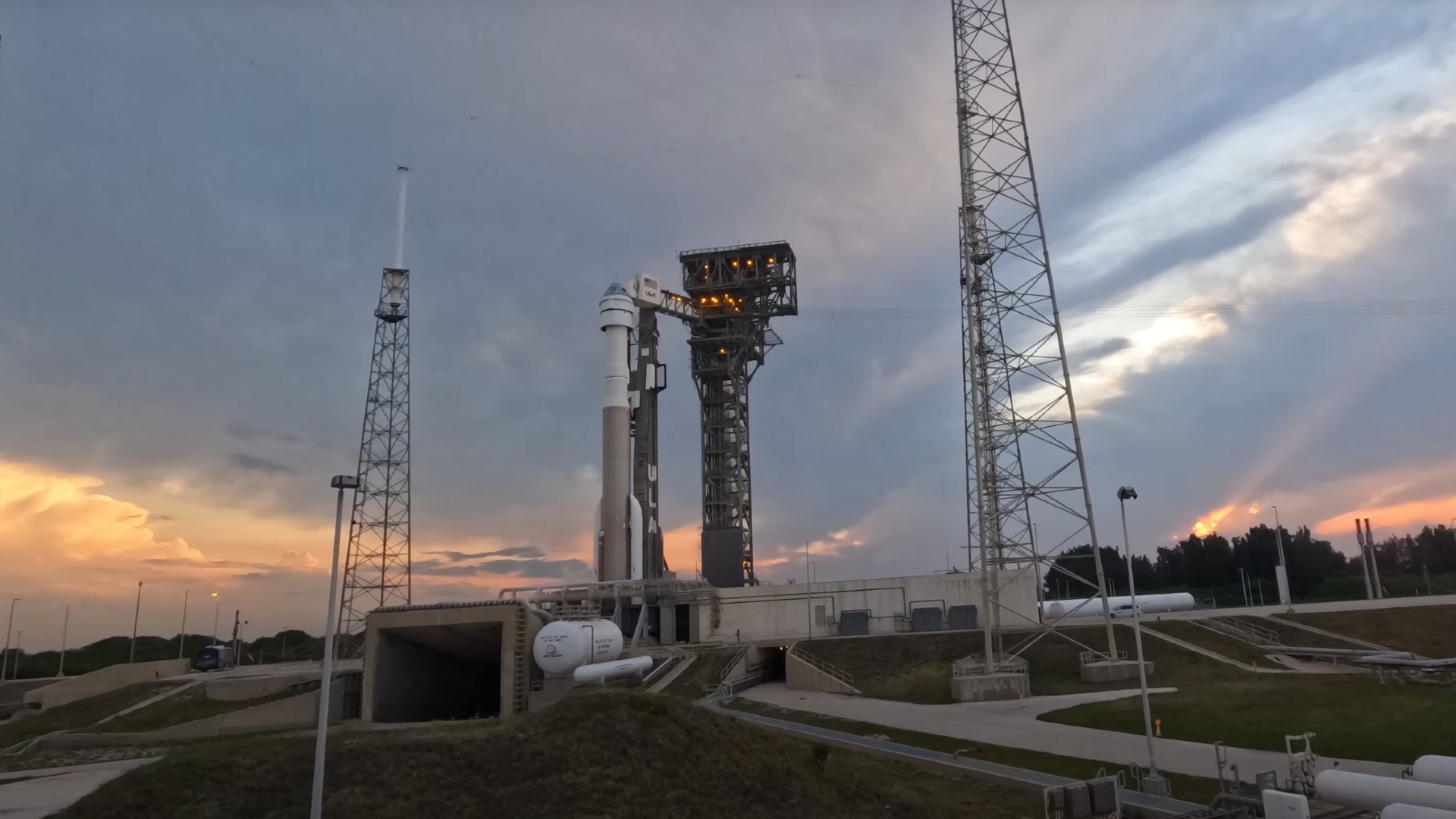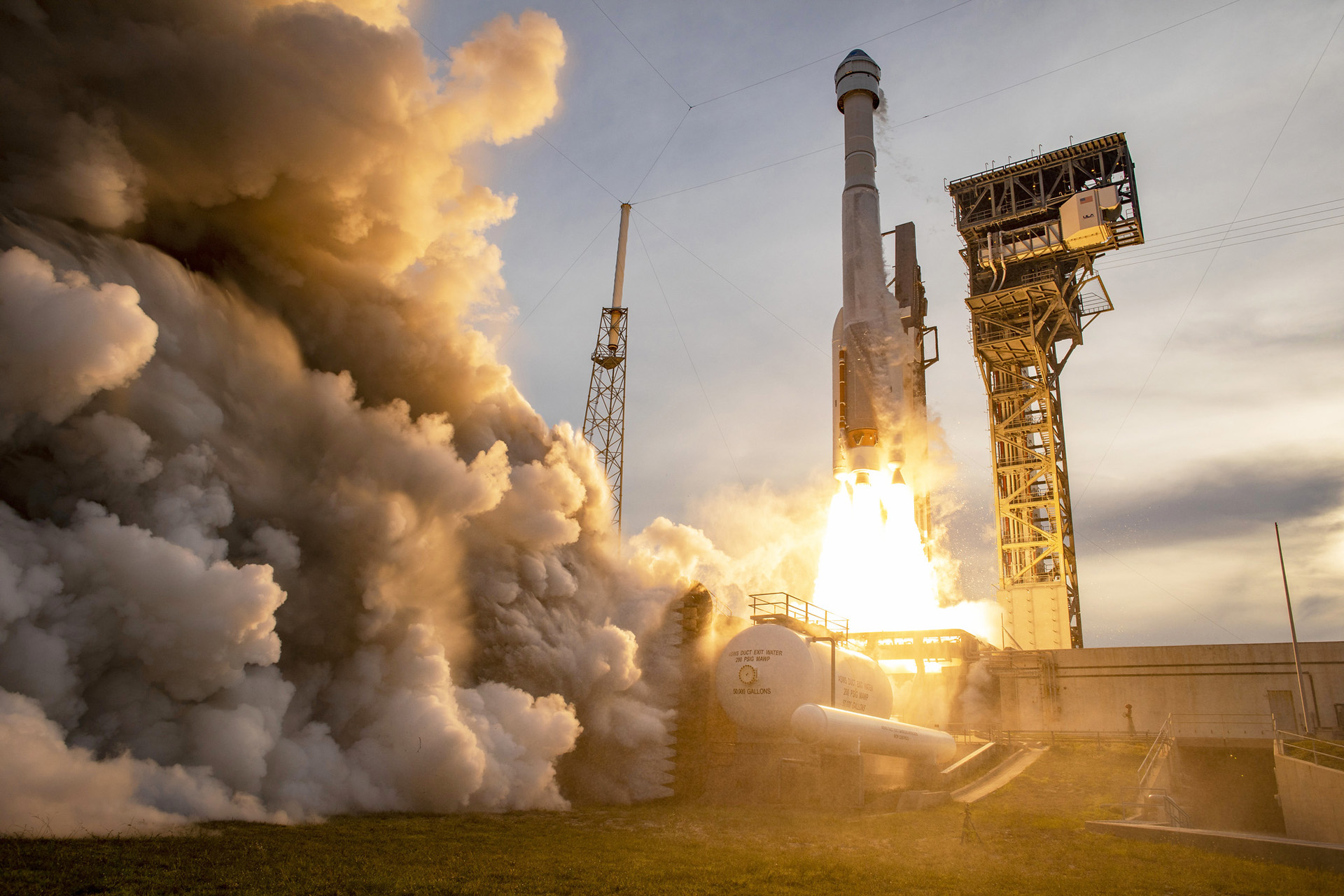
The long-awaited Crewed Flight Test (CFT) of Boeing's Starliner spacecraft is finally upon us.
A United Launch Alliance (ULA) Atlas V rocket is scheduled to launch Starliner with NASA astronauts Butch Wilmore and Suni Williams on a shakedown mission to the International Space Station (ISS) on May 6. This will be Starliner's third flight, but the capsule's first with a crew aboard.
With the spacecraft day's away from its crewed debut, ULA has released a short video highlighting how Starliner's Atlas V launch vehicle was stacked and integrated with the spacecraft.
Related: How to watch Boeing's 1st Starliner astronaut launch webcasts live

ULA posted the video on X, formerly Twitter, a week before Starliner's scheduled launch, with the caption, "Reigniting Atlas' legacy of launching humans to space, ULA is using an #AtlasV rocket to launch the Crew Flight Test. Check out how the Atlas V rocket was stacked ahead of next week's launch."
With Starliner ready for flight, the video lays out ULA's process for assembling and stacking the Atlas V rocket, mating it with the Starliner spacecraft, rolling the stack to SLC-41, and other significant milestones leading up to the moment of launch.
Atlas V is powered by two RD-180 rocket engines, paired for this flight with two solid rocket boosters (SRBs). The launch vehicle's first stage stands 106.5 feet (32.5 meters) tall, and is joined with its Centaur upper stage, propelled by a pair of RL-10A rocket engines. Combined with Starliner, the whole rocket stands at 172 feet (52.4 meters).
The trio are stacked inside ULA's vertical integration facility (VIF) at Cape Canaveral Air Force Station, in Florida, and are scheduled to roll out the SLC-41 at 10 a.m. this Saturday, May 4.

Reigniting Atlas' legacy of launching humans to space, ULA is using an #AtlasV rocket to launch the Crew Flight Test. Check out how the Atlas V rocket was stacked ahead of next week's launch #Starliner #CFTWatch on YouTube: https://t.co/9lthxHUAYT pic.twitter.com/Ow8Ionny1mApril 30, 2024
ULA's video also points out some of the fueling and crew boarding procedures during the mission's launch countdown. Wilmore and Williams will arrive at the launchpad about three hours prior to liftoff, aided by ULA's "Blue Team," as mission operators run through prelaunch checklists leading up to liftoff.
Starliner is scheduled to launch Monday, May 6, at 10:34 p.m. EDT, and will rendezvous with the ISS May 8, at 12:48 a.m. EDT (0648 GMT). During the shakedown flight, Wilmore and Williams will test the gamut of Starliner's systems, spending about 10 days on the space station before returning to Earth.
This mission will be Starliner's third flight. In 2019, the first of Starliner's uncrewed test flights failed to complete its mission of rendezvousing with the ISS due to software issues. Another launch in 2022 managed to meet all NASA and Boeing's major objectives for the spacecraft. However, after discovering the flammable nature of the tape used around much of Starliner's internal wiring, the crewed launch was further delayed.







